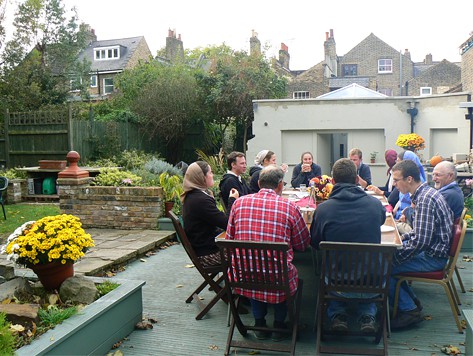It was in 1955 – the year that Winston Churchill stepped down as prime minister – when Fritz Schumacher first went to Burma as an economic consultant.
It changed his life.
There he was, in a nation where none of the normal economic assumptions applied.
How do you work out the GNP of a country, for example, where the main product is prayers and monasteries?
By the time Small is Beautiful was published, exactly five decades ago this May, he had become the extraordinary, rococo, pioneer that he was to be. He had also, in 1971, become a Roman Catholic.
I mention this because of the way some commentators tend to deprecate the failure of the electorate to take as much notice a they might do of ‘non-economic’ ideas.
It’s all very well for them to ignore Project Fear, for example, and to vote for Brexit. But people need to know which side their bread is buttered – or so they say…
Well, I take the Brexit vote as a paradoxically hopeful sign, despite everything, that people are not just prepared to vote for the best economic option, though it is true that the brief premiership of Liz Truss took this whole argument to absurd extremes.
In any case, if Tim Morgan is correct, then we will have to find a new way of doing economics anyway.
Because he was a catholic, Schumacher found himself reading with interest the papal encyclicals of the the 1890s to the 1930s – which developed what is now known as catholic social doctrine.
The EU was founded on the principle of subsidiarity, which draws from the same place.
It seems to me that, if there is such a thing as the ‘radical centre’ – the original purpose for Radix – then this is where their economics derives from. That we can’t any more rely on ‘growth’ to fix anything – partly because it begs all the questions about growth of what? For what? Partly because growth seems to be disappearing from the human experience anyway.
So it has occurred to me that there are still people in this country who stick to the old medieval method of economic success – as they did in Myanmar when Schumacher was there in 1955.
I refer of course to monks and nuns.
I wondered about this over the weekend, when Sarah and I found a footpath that took us all the way around St Hugh’s Charterhouse monastery in Sussex – a huge network of buildings, housing about 27 monks – in a country who that still produces monasteries and Carthusian monks, among others.
I am not so much of a utilitarian that I regard that as any kind of cop-out.
In fact, I wish that more of our young people would find a vocation as monks – which was the original thinking behind the launch of the Benedictine order in the 11th century.
But it occurs to me that the trends among young people – not to join or start monasteries – but to design and join intentional communities.
There is one emerging now not far from where I live.
The problem is, as they discovered last time there was a major move towards utopian communities, in the 1920s – is that the economic values of society run right across them.
So what might seem attractive as a young married couple looking to put down roots might not be nearly so much fun by the time their children have grown up and they are looking forward to a bit of privacy.
That is why, I am sure that some of these trends are beginning to become off-the-shelf institutions, like co-housing, inter-generational housing, or community land trusts.
Unfortunately, we have had Duane Elgin’s voluntary simplicity movement (and now it’s gone!). We have been through the period of Polly Ghazi’s Getting a Life – when people began to ‘downshift’.
Few people can afford to do that now because the gap between house prices in London and the corners of Dorset or Norfolk where the downshifters aimed to go are not wide enough any more. In fact, London house prices have replicated themselves practically everywhere.
l am sorry about this, although I have escaped from London myself – that was really so that I could claw back some kind of choice over my children’s secondary education (you don’t get to chose in London any more – they choose you!)
But equally, I am sorry that the age of downshifting is over – but I am very glad to be able to announce that the age of community land trusts and communal living is with us again, for the first time for a century.
Why? Perhaps because we are living in a period of deep conservatism, when young people are shifting their values and facing new dangers, having just been through a war. We don’t all want to just go and attack the world gung-ho – though clearly there are some who think we should.
That describes now and the 1920s and, all the time during both periods, the stock market just keeps on rising…





